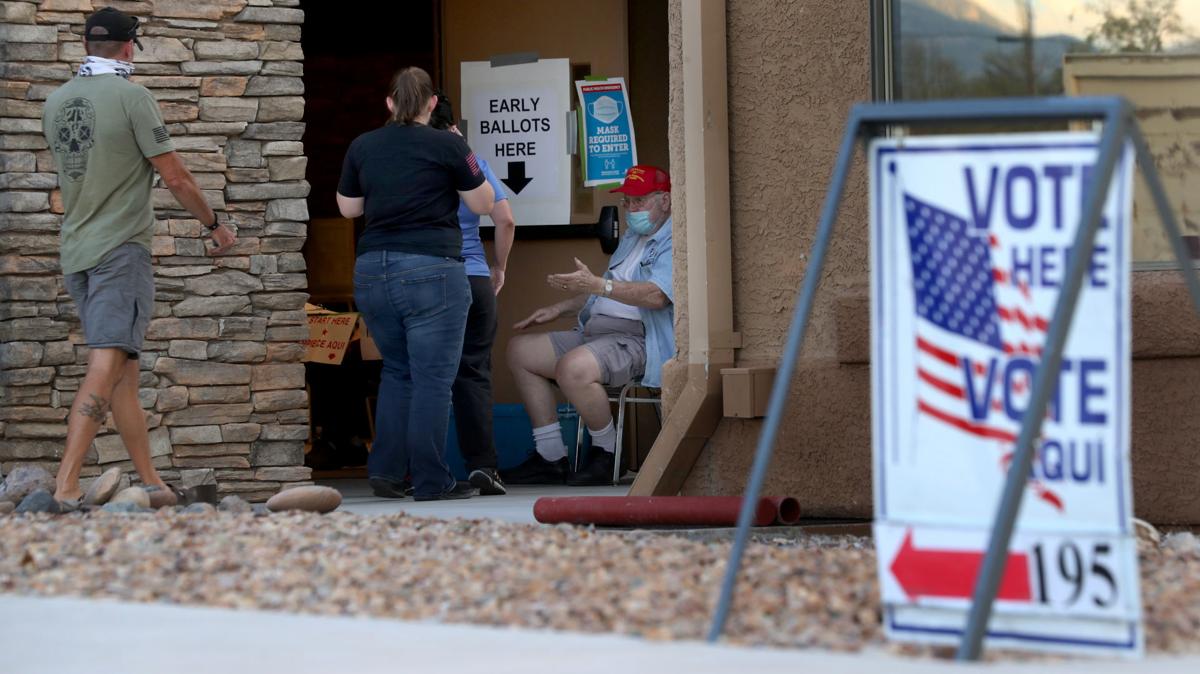PHOENIX — Republican legislators voted Wednesday to block counties from applying for private grants to make up for shortfalls in what they say they need to properly run elections.
The 16-14 party-line vote by the Senate for HB 2569 came as GOP lawmakers said the more than $6 million in grants that nine counties got from Center for Tech and Civic Life in 2020 was really just a thinly disguised effort by billionaire Mark Zuckerberg to turn out more Democrats. The group gave out about $400 million nationally to about 2,500 jurisdictions nationally, with reports by the organization showing the lion’s share came from Facebook founder Zuckerberg and his wife, Priscilla Chan.
Sen. Sonny Borrelli, R-Lake Havasu City, complained the money that ended up in Arizona went to “key swing” counties, notably the Phoenix and Tucson areas.
“This was targeted in a way to really undermine the integrity of the system under the guise of trying to promote and get out the vote logistics,” he said.
But the record shows otherwise. While the two largest counties got the largest allocations, seven others also got financial help, including Graham, La Paz, Yuma and Pinal counties where registered Republicans outnumber Democrats.
And Sen. Christine Marsh, D-Phoenix, pointed out that this wasn’t unrestricted funds dropped on county election officials but that, in each case, they had to apply and spell out how they would use the money.
That money, said Sen. Martin Quezada, D-Glendale, went for particular needs this year due to the COVID pandemic, like additional drop boxes, cleaning supplies, rent for polling places, temporary staff and personal protective equipment.
“Those are basic necessities when you are administering elections,” he said.
“There is zero evidence whatsoever that this money was used in any partisan manner,” Quezada continued. “It wasn’t just helping Democrat voters, it was helping Republican voters, it was helping independent voters.”
But Sen. Kelly Townsend, R-Mesa, said the money received was above the adopted budgets for county recorders and was not needed to fill in gaps.
“But beyond that, if this grant was coming from China or if this grant was coming from Russia, we might be calling it Russian interference with our elections,” she said.
“So what is the difference between international money coming from a state overseas to an individual interested party, regardless of how it was spent and how desperately it was needed?” Townsend said. “It’s inappropriate.”
That, however, still leaves the question of whether the counties had the money they needed.
Sen. Jamescita Peshlakai, D-Cameron, said she has worked in a county elections office.
“There are struggles of logistics and so many unknowns,” she said, even in the best of circumstances.
In the 2020 election, Peshlakai said, the extra grant dollars went into brochures and public announcements in rural Arizona.
More to the point, she said there were measures to keep people from getting ill from COVID-19 during the election.
“They put out tents, they put out water, hand-washing stations, sanitizer,” Peshlakai said. “And in many places they even put up porta-potties because the remote locations they vote in places are where people don’t have facilities, running water.”
Sen. J.D. Mesnard, R-Chandler, said it is “irrelevant” whether counties had enough money to run the 2020 election. He said the issue is the precedent being set.
“This is about the future and whether or not in the future we’re going to allow big businesses to have a new tool in their arsenal for how they influence our elections,” Mesnard said. And he called it “alarming” that those who want more money for elections to say that it doesn’t matter what is the source.
“If we don’t put a stop to this, if this becomes a trend, you’re going to see all kinds of very wealthy people engaging in this covert, behind-the-scenes” activity.
Peshlakai, however, said if lawmakers are concerned about the influence of money they should do more to curb the influence of cash to sway election results. Some of that, she said, is the result of the 2010 Citizens United case when the U.S. Supreme Court concluded that corporations had the same rights as individuals to donate to affect the outcome of elections.
Mesnard had a different take on it.
“This makes ‘dark money’ look like a bright day,” he said, referring to Arizona laws that allow special interest groups to try to elect candidates of their choice without having to disclose their donors.
And he said the public is on his side.
“When I talk to folks about, ‘Should we let Mark Zuckerberg start funding our elections,’ I have yet to find a single one who thinks that’s a good idea,” Mesnard said.
The party-line vote sends the measure, which already has been approved by the House, to the governor.





